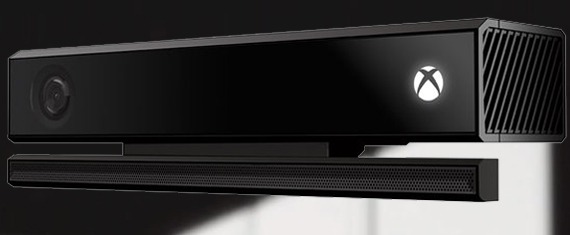 When the Xbox 360 and PS3 launched, the consoles underscored the brief battle between the HD-DVD and Blu-ray Disc formats. Microsoft’s Xbox 360 backed HD-DVD via a peripheral, while Sony’s PS3 used an embedded Blu-ray drive to introduce the format, much like the PS2 doubled as many consumers’ DVD player. Part of Microsoft’s support for HD-DVD over Blu-ray was to avoid paying royalties to a staunch competitor. But with the Xbox One, Microsoft could end up paying royalties to Apple Inc. for every console it sells. And one could argue that Apple is even more of a competitor for Microsoft than Sony ever will be.
When the Xbox 360 and PS3 launched, the consoles underscored the brief battle between the HD-DVD and Blu-ray Disc formats. Microsoft’s Xbox 360 backed HD-DVD via a peripheral, while Sony’s PS3 used an embedded Blu-ray drive to introduce the format, much like the PS2 doubled as many consumers’ DVD player. Part of Microsoft’s support for HD-DVD over Blu-ray was to avoid paying royalties to a staunch competitor. But with the Xbox One, Microsoft could end up paying royalties to Apple Inc. for every console it sells. And one could argue that Apple is even more of a competitor for Microsoft than Sony ever will be.
One of the core functions of the Xbox One entertainment suite involves voice controlling your TV, movies and Internet searches via Bing. For Microsoft’s console to recognize those voice commands, the system requires the Xbox One version of the Kinect sensor. As such, Microsoft has included the Kinect in every Xbox One box, whereas Sony has chosen to reduce the out-the-door cost of its PS4 by making the PlayStation 4 camera an optional peripheral
. The irony of Microsoft’s decision is that by including the Kinect in every box, the company could end up paying a royalty fee to Apple every time the company sells an Xbox One system.
Here’s how it could work: The Xbox Kinect uses special image-processing technology that combines video streams from multiple cameras into a 3D spatial map. Microsoft didn’t create that technology, but licenses it from a small Israeli company called PrimeSense. According to Israeli newspaper Calcalist, Apple Inc. is in discussions with the company about acquiring the company that created the Kinect technology.
[PUBLISHER’S UPDATE: Microsoft’s new Xbox One Kinect sensor was created entirely in-house and did not use PrimeSense technology. Therefore, the Redmond-based company would not need to pay royalties or licensing to any entity based on sales of the Xbox One Kinect hardware. PrimeSense was not involved in the technology behind the new version of the Kinect. We apologize for the confusion this errant reporting has caused.]
PrimeSense isn’t a fly-by-night startup; the company’s already raised $85 million from venture-capital firms, according to Calcalist. However, venture capitalists are always looking for a payoff, and that $85 million investment pales in comparison to the $280 million price Apple is rumored to be offering to PrimeSense in the acquisition talks.
If Apple Inc. does acquire PrimeSense, the licensing fees Microsoft pays for selling Kinect hardware would no longer go to the Israeli company, but to a certain arch-rival named after a fruit and based in California. However, Apple’s potential acquisition isn’t likely an attempt to harm Microsoft’s console business. Instead, it’s likely a move to bolster Apple’s rumored iTV so its functionality can compete with Samsung’s TVs unveiled earlier this year.
Microsoft and Apple have traditionally battled it out in the OS and computing realms, and recent years have seen the companies duke it out for market share in the smartphone and tablet realms. Apple holds a significant lead in both of the latter categories, with the iPhone dominating Windows Phone, and the iPad so handily beating Surface RT tablets that Microsoft has just unveiled a new anti-iPad ad. If Apple ends up acquiring PrimeSense, it would undoubtedly be a tough pill for Microsoft to swallow. Microsoft will already pay a royalty to Sony for each Xbox One sold because the next-gen system includes a Blu-ray drive. To have to pay a Kinect licensing fee to Apple, even though Apple isn’t a console competitor, would be a hit to Microsoft’s pride, even if it wouldn’t be an unexpected expense.
